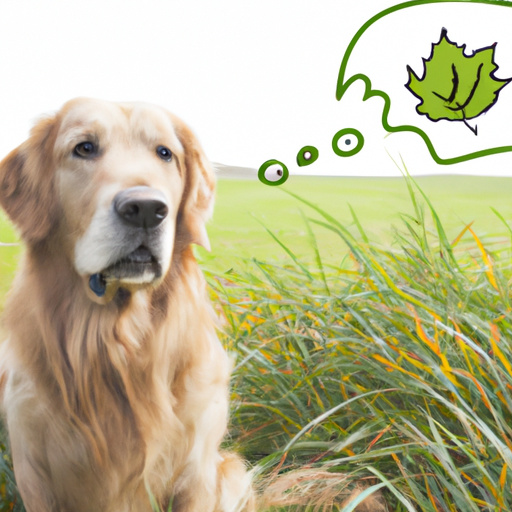If you are a dog owner, you’ve likely witnessed your canine companion munching on a patch of grass or gnawing on a leaf. This behavior may seem peculiar, especially considering that dogs are primarily carnivores. This article will delve into why dogs eat grass and leaves, the potential health implications of this behavior, and what you should do if your dog is frequently dining on greenery.
Table of Contents
- Understanding the Behavior
- Potential Health Implications
- What to Do if Your Dog Eats Grass or Leaves
- Frequently Asked Questions
Key Takeaways
- Dogs may eat grass and leaves due to multiple reasons including boredom, dietary deficiency, or instinct.
- Eating grass and leaves does not generally pose a health risk to dogs.
- If your dog is frequently eating grass or leaves, it may be helpful to consult with a veterinarian.
Understanding the Behavior
Dogs are scavenging carnivores which means they are primarily meat-eaters but will often consume a variety of foods. The ingestion of grass and leaves, known as pica, is a common behavior in dogs. One reason why dogs may eat grass or leaves is due to boredom. Dogs that are not getting enough physical or mental stimulation may turn to eating grass or leaves as a way to entertain themselves.
Another potential reason for this behavior is dietary deficiency. If your dog’s diet is lacking in certain nutrients, they may be driven to eat grass or leaves in an attempt to supplement their diet. Furthermore, some dogs may eat grass or leaves out of instinct. Before dogs were domesticated, their wild ancestors would often eat the stomach contents of their prey, which could include grass or leaves. Thus, some dogs may eat grass or leaves as a holdover from their wild ancestors.
You can learn more about your dog’s dietary needs here.
Potential Health Implications
Generally, the occasional consumption of grass or leaves poses no significant health risk to dogs. In fact, most dogs can digest grass and leaves without any issues. However, if your dog is ingesting grass or leaves frequently or in large quantities, it could potentially lead to problems such as choking or intestinal blockages.
Furthermore, it’s important to be aware of the potential for pesticides or other harmful chemicals on grass or leaves. If your dog is eating grass or leaves from an area that has been recently treated with chemicals, it could potentially lead to health problems.
You can find more information on potential health risks associated with dogs eating grass or leaves here.
What to Do if Your Dog Eats Grass or Leaves
If your dog is frequently eating grass or leaves, it may be helpful to consult with a veterinarian to rule out any potential health issues. Additionally, you may want to evaluate your dog’s diet to ensure they are getting all the necessary nutrients.
Increasing your dog’s physical and mental stimulation can also help curb this behavior. Regular walks, playtime, and puzzle toys can provide your dog with the stimulation they need.
Here are some tips on how to keep your dog entertained, the best toys for your dog, and how to keep your dog healthy through diet.
Frequently Asked Questions
- Is it normal for dogs to eat grass or leaves? Yes, this is a common behavior in dogs and is generally not a cause for concern.
- Can eating grass or leaves make my dog sick? While most dogs can digest grass and leaves without any issues, frequent or large quantity consumption can potentially lead to health problems.
- What should I do if my dog is frequently eating grass or leaves? If your dog is frequently eating grass or leaves, it may be helpful to consult with a veterinarian. Additionally, increasing your dog’s physical and mental stimulation and ensuring they are getting a balanced diet can help curb this behavior.



